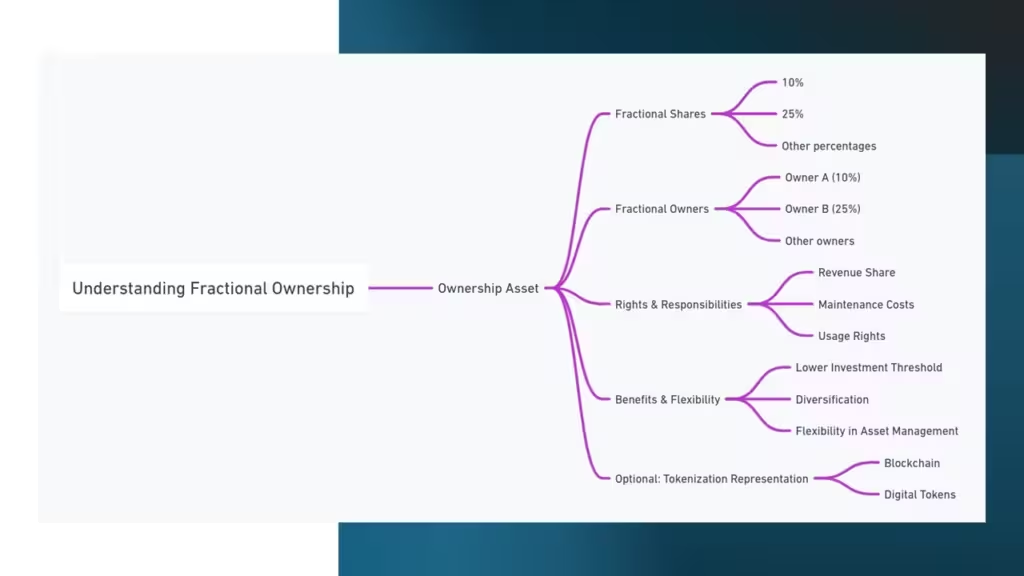When fractional ownership involves tokens tied to real-world assets—like art or real estate—it typically qualifies as a security. That triggers compliance with laws such as Reg D, Reg A+, or Reg S in the U.S., plus mandatory KYC/AML procedures and clear linkage between token and legal claim. Legal frameworks are still evolving, so proper structuring is essential.
“Tokens should accurately represent legal claims to underlying assets, and mechanisms must allow seamless and secure transfers while maintaining enforceable ownership rights.”
— Legal Framework for the Tokenization of Real‑World Assets
Fractional ownership is a fascinating concept that has gained traction in recent years, particularly among those looking to invest in high-value assets without bearing the full financial burden. Imagine owning a slice of a luxury beachfront property or a rare piece of art that might otherwise be out of reach. This model is not just about sharing costs; it’s about sharing opportunities. But with opportunity comes complexity, especially when it comes to legal matters. Let’s explore the legality of fractional ownership, focusing on contracts, governance, and dispute resolution.
Framework for Understanding the Legality of Fractional ownership
At the heart of fractional ownership is a simple idea: why should one person bear all the costs and responsibilities of an asset when they can be shared? However, this simplicity belies the complex legal frameworks required to make it work smoothly.
Contracts: The Foundation of Fractional Ownership
Consider this: You and four friends decide to buy a vacation home together. It’s a dream come true—until someone wants to use the property during the same week. How do you avoid conflict? This is where the contract comes in. A well-drafted contract lays out the rules for everyone involved. It specifies not only how the property will be used but also how maintenance costs will be split, how decisions will be made, and what happens if one of you wants out.
For example, let’s take the case of a group of investors purchasing a luxury yacht. Their contract doesn’t just say, “We own this yacht together.” It dives into the nitty-gritty: Who gets to use it when? Who is responsible for docking fees? What if someone wants to sell their share? Without such details, what begins as a shared dream can quickly become a source of tension.

Governance: Keeping the Peace
Ownership is only the beginning. Once the papers are signed, how do you manage the day-to-day operations? Governance is the answer. Whether you’re dealing with a physical asset like a property or a digital one like a piece of tokenized real estate, you need a clear governance structure.
Picture a scenario where you’re one of several owners of a vintage car collection. The group decides to appoint a manager—perhaps one of the owners or an external party—who will handle the logistics: arranging for storage, scheduling maintenance, and ensuring the cars are insured. This structure prevents minor issues from escalating into major conflicts.
In the real estate sector, companies like Pacaso have taken this a step further. They don’t just sell shares in luxury homes; they manage everything from property maintenance to owner scheduling. This kind of turnkey solution is becoming increasingly popular because it simplifies ownership and minimizes the potential for disputes.

Dispute Resolution: Preparing for the Inevitable
Even with the best-laid plans, disputes are bound to happen. Maybe two co-owners want to use the asset at the same time, or perhaps there’s a disagreement over whether to sell. Whatever the issue, having a pre-agreed dispute resolution process is crucial.
Imagine a situation where several art collectors co-own a valuable painting. One wants to sell it to capitalize on a hot market, while another wants to hold on for sentimental reasons. Instead of heading straight to court, the owners might agree to mediation, where a neutral third party helps them reach a compromise. If mediation fails, they might move to arbitration, where an arbitrator’s decision is final. This kind of step-by-step dispute resolution process is often less costly and quicker than litigation.
In some cases, these processes are even more structured. For instance, in fractional jet ownership, companies often include detailed arbitration clauses that cover everything from who can initiate arbitration to how the costs will be shared. These provisions ensure that all parties know what to expect and can avoid the uncertainty and expense of going to court.
Legal Challenges and Considerations of Fractional Ownership
Fractional ownership is not without its challenges. The regulatory environment can be a minefield, especially when crossing borders. What’s perfectly legal in one jurisdiction might be problematic in another. For example, some countries might treat fractional ownership arrangements as securities, subjecting them to stringent regulations.
Then there are tax implications. Owning a fraction of a property doesn’t exempt you from taxes. In fact, it can complicate things. Depending on how the ownership is structured, you might be liable for income tax on any profits generated by the asset and capital gains tax when you sell your share. This is where professional legal and tax advice becomes invaluable for the minefield surrounding the legality of fractional ownership.
Consider the growing trend of tokenized real estate, where blockchain technology is used to represent shares in a property. While this innovation is exciting, it introduces a new layer of legal complexity. How do you ensure that these digital tokens are legally recognized? What happens if the platform facilitating these trades fails? These are just a few of the questions that investors need adrressed, in the contracts governing these transactions.
Real-Life Example: Tokenized Real Estate
Let’s look at a real-world example. RealT, a company based in the United States, is pioneering the tokenization of real estate. They allow investors to buy fractional ownership in properties through blockchain tokens. It’s a revolutionary concept, making real estate investment more accessible to a broader audience.
But with innovation comes risk. RealT must navigate not only traditional real estate laws but also the uncharted waters of blockchain regulation. Their contracts need to cover not just the usual property-related issues but also the specific risks associated with digital tokens—like what happens if a token holder loses access to their digital wallet.
Conclusion: The Importance of Legal Due Diligence
Fractional ownership is a powerful way to unlock the benefits of high-value assets, but it’s not for the faint-hearted. The legal complexities are significant, and the stakes are high. Whether you’re investing in a piece of property, a luxury item, or a digital asset, it’s crucial to ensure that every legal detail is covered. This means having airtight contracts, clear governance structures, and well-defined dispute resolution processes.
As this model continues to evolve, particularly with the rise of tokenized assets, staying informed and proactive about the legality of fractional ownership will be more important than ever. By doing so, investors can maximize the benefits of fractional ownership while minimizing the risks.
❓ FAQ – Legality of Fractional Ownership, Navigating Contracts
If the token ties to future profits, cash flows, or expectations of gains, U.S. regulators apply the Howey Test—meaning it likely is a security and must comply with securities regulations.
Issuers usually register under frameworks like Reg D (private investors), Reg A+ (public mini-IPO), or Reg S (for offshore investors). They also must implement KYC/AML and disclosures.
Tokens must be expressly connected to enforceable contracts or legal documents—either blockchain-native (“instrumentum”) or reflected via mirror legal structures (“negotium”). This ensures true ownership.
Without clear linkage, token holders may have no legal recourse if the platform fails, or if ownership disputes arise—despite holding tokens. Anti-fraud protections may not apply.
Jurisdiction matters: tokens may be securities in the U.S., while places like Singapore and the UK have clearer tokenization regulations. Cross-border issuance adds legal complexity.
Use legal counsel to define token asset structure; map token rights to legal documentation; build AML/KYC and audit infrastructure; and choose compliant issuance frameworks.
We use AI tools to enhance research and drafting, always under human supervision.

